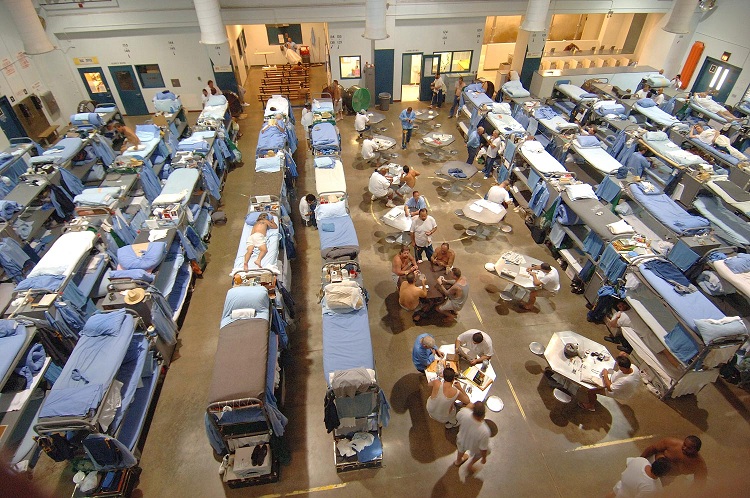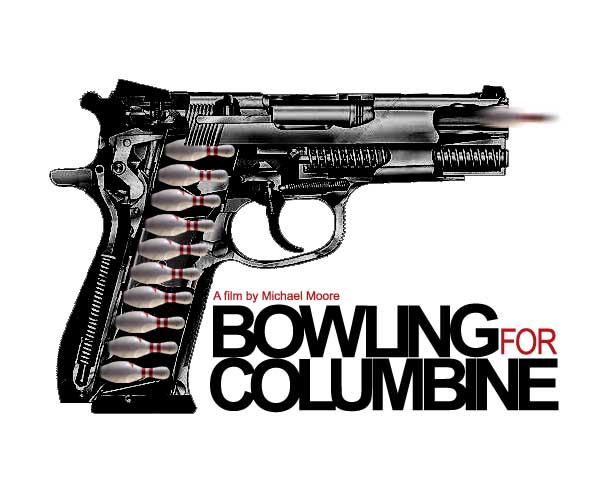
Media Sensationalism in Democracies: Sensationalist media stories create the worst sort of precedent and are out of keeping with tolerant spirit of our age.
After every mass shooting there are outcries from both sides of the second amendment rights issue. The media often sensationalizes each opinion in order to garner more ratings while keeping the story the main focus of the news for a period of time until the issue is ultimately forgotten. These sensationalist debates are products of two modes of thought that inhibit those for and against gun control: the violence, cruelty and hypocrisy symptomatic of a people that have too much free reign, and last, the surly ill-temper which only shows up in humans when they are frightened. In a country in which tolerance is endemic to society, there seems to be none in this national discussion on how to curb mass violence. These sensationalist media stories create the worst sort of precedent and are out of keeping with the tolerant spirit of our age.
Sensationalism and American Violence in Art
In the film, Natural Born Killers, many of these issues are addressed. The media routinely sensationalize events such as these, drawing away the focus of attention from those who suffered from it. Gun violence in movies is often used as a scapegoat in order to explain anomalies of unwarranted criminal behavior involving guns. In the absence of a clear motive in such spontaneous criminal behavior, possible influences are brought to attention often under false pretenses. Through the media and interest groups these sentiments are perpetuated throughout society, permeating the ideological constructs of our social structure.
 Due to the exposure of gun violence that is often anesthetized in films to stir conflict in the plot and add entertainment value, violent films are often blamed in the cause of such behavior coming to fruition in reality. The reactions to violence portrayed in films can’t be regulated to such an extent that any link between their influence and extreme societal behaviors can be dissipated.
Due to the exposure of gun violence that is often anesthetized in films to stir conflict in the plot and add entertainment value, violent films are often blamed in the cause of such behavior coming to fruition in reality. The reactions to violence portrayed in films can’t be regulated to such an extent that any link between their influence and extreme societal behaviors can be dissipated.
Violence in films serves several purposes, exploring and reflecting behaviors and conflicts that are inherent in society. Claims that violent films incite gun violence are unfounded, incredibly vague and deter away from the societal problems and individual responsibilities that are rooted in such abhorrent activities.
Aggression is an inherent human characteristic and violence in films is one mode designed to control aggression in our society rather than fuel and spawn it amongst individuals. Many films that portray gun violence shed light on the consequences of using gun violence to handle arguments and disputes. Villains that use gun violence to harass the innocent are thwarted by the heroes.
The horror. The horror.
Films that lack a protagonist/antagonist approach such as the Francis Ford Coppola film Apocalypse Now, based on the novel Heart of Darkness by Joseph Conrad about colonial Congo, also help uncover the horrors of gun violence on all parties involved in mass violence like the Vietnam War. Amidst a conflict in which murder and destruction run rampant, the social structures constructed by the U.S. military crumbled. The horrors of war cause a loss of control over the soldiers from these institutions involved in war as the stability and security society afforded to them is stripped away through the conflict of war.
 The inability of soldiers to escape from death and suffering in war is reflected in the characters in Apocalypse Now suffering from different levels of insanity. Captain Willard played by Martin Sheen is sent on a mission to murder one of the army’s most decorated officers. On his journey Captain Willard encounters first-hand what drove Colonel Kurtz to insanity. The film portrays the deconstruction of the security of civilization that ceases to exist under the duress of unending gun violence in war.
The inability of soldiers to escape from death and suffering in war is reflected in the characters in Apocalypse Now suffering from different levels of insanity. Captain Willard played by Martin Sheen is sent on a mission to murder one of the army’s most decorated officers. On his journey Captain Willard encounters first-hand what drove Colonel Kurtz to insanity. The film portrays the deconstruction of the security of civilization that ceases to exist under the duress of unending gun violence in war.
As Captain Willard progresses through his journey to complete the mission given to him, he slowly realizes the state of mind that has grasped Colonel Kurtz. Kurtz tells Willard that to win a war, “you have to have men who are moral… and at the same time who are able to utilize their primordial instincts to kill without feeling… without passion… without judgment.”
Every character in the film struggles with detaching themselves from civilization, put into a situation in which instilled morals could not be ignored. The reasons for war were not apparent in the battles shown. The film does not have a happy ending or offer some sort of solution. Bleakness, dread and depression permeate the entire movie.
Once Captain Willard completes his mission in killing Colonel Kurtz it is obvious that it was done to put him out of his misery, not to perform a good deed on behalf of the military. He scoffs at the idea of being promoted for completing his mission as the memory of Kurtz will haunt him for the rest of his life. Rather than glorifying murder, Apocalypse Now explores and reflects the consequences of it in graphic detail.
Natural Media Sensationalism
During the Vietnam era, the media often sensationalize reports of gun violence, profiting off of the fear and entertainment value such stories perpetuate. The Oliver Stone film Natural Born Killers provides satire on the sensationalist tendencies of the media. In the film, a media celebrity played by Robert Downey Jr. sensationalizes the main characters, a serial killer couple, as a means to build them up to a celebrity status in which the media profits from higher ratings. Rather than portray and report the suffering and pain induced by these serial killings, the media in the film glorify their actions. The couple gains a fan base from such reporting and the inability of law enforcement to stop the violence is mocked despite police casualties. The media gives these murderers a public profile which invokes sympathy for them.

With outlaws on the run, the media profits off of the disapproval that exists in society for institutional flaws that leave the system seemingly inept in stopping the serial killings in the film. Even once the couple is caught the media continues to utilize the celebrity status of these criminals by giving them personal attention through interviews, glorifying and sensationalizing the program that provides positive attention to the killers in the film. The media in the film actually set up interviews by promising the warden of the prison fame and notoriety in doing so.
Natural Born Killers, released in 1994, exposes the irresponsibility of these media tendencies. The narrative of the film is fueled by the fictitious media which promotes and glorifies the violence conducted by the main characters. At the end of the film even Robert Downey Jr’s character participates in the use of gun violence in the serial killer’s prison break only to succumb to his own death at the hands of the serial killers he aided in freeing.
After the movie was released a victim of gun violence sued Oliver Stone due to her assailant’s viewing of Natural Born Killers while on acid right before the crime was committed. Another victim in the shooting was killed who happened to be a friend of best-selling author John Grisham who participated in the lawsuit citing irresponsibility on Oliver Stone’s part in making a film that incites violent behavior.
After several deliberations and appeals the case was eventually dropped but it did call into question the practices of the film industry in relation to its influence on society as a whole. Despite individual reactions to Natural Born Killers, the film was reactionary to the irresponsibility of the media in perpetuating and profiting from public fear of such societal problems as gun violence and its manifestation.
Sensationalism and American Violence With Guns
In the Michael Moore film, Bowling for Columbine, Michael Moore concludes that there is no connection between gun ownership and gun violence. Guns are a fact of life; especially in the U.S. Society has always had inherent tendencies towards violence. Guns can even diffuse violent encounters when used by law enforcement or others trained properly to handle and yield a firearm. Gun violence in modern society is much more evident on a municipal scale rather than a permeating commonality throughout the country. The criminal use of firearms is a product of environmental and individual flaws, exercising personal power in a manner lacking moral values.
 Michael Moore’s documentary emphasizes the cause of such widespread gun violence overall in the United States to the media and institutions with personal interests generating a cycle of fear in order to fuel profiting industries. The film cites the existence of a violent history of gun violence in the United States and the mainstream exposure of gun violence in films.
Michael Moore’s documentary emphasizes the cause of such widespread gun violence overall in the United States to the media and institutions with personal interests generating a cycle of fear in order to fuel profiting industries. The film cites the existence of a violent history of gun violence in the United States and the mainstream exposure of gun violence in films.
An interview in the film with Goth rock musician Marilyn Manson emphasizes fighting the acceptance of violence as a solution to conflict. Michael Moore asks Marilyn Manson what he would say to the two shooters in the Columbine High School massacre that caused such intense debate on the subject of gun violence throughout the public. He replies “I wouldn’t say a single word to them. I would listen to what they have to say and that is what no one did.”
The film calls for a paradigm shift in the collective consciousness of the American public on gun violence that is at the mercy of institutional prejudices. Moore alludes to what Walter Benjamin described as an “ideological state apparatuses” as being responsible for views on guns that inhibit their use for criminal acts. Moore did attack proponents of firearm usage under regulations in accordance with laws in the film but he lumped these individuals and their indulgences of controlled firearm use with the ideological state apparatuses.
Ending Media Sensationalism
What seems clear is that there is reflected in modern media the great tragedy of structural violence that today leaves Americans at awe. It is up to concerned individuals and organizations to push for education, training and responsible regulation of firearms and their availability, even if they must act without the help of the political powers that be. Violence is a central character in human society and always has been. Yet there is hope that the broad issue of violence in the modern world can be properly addressed by a renewed and open debate on the role of media and government.
Get deeper into the world of elections at our World Democracy and US Election Reform pages!
Leave a Reply